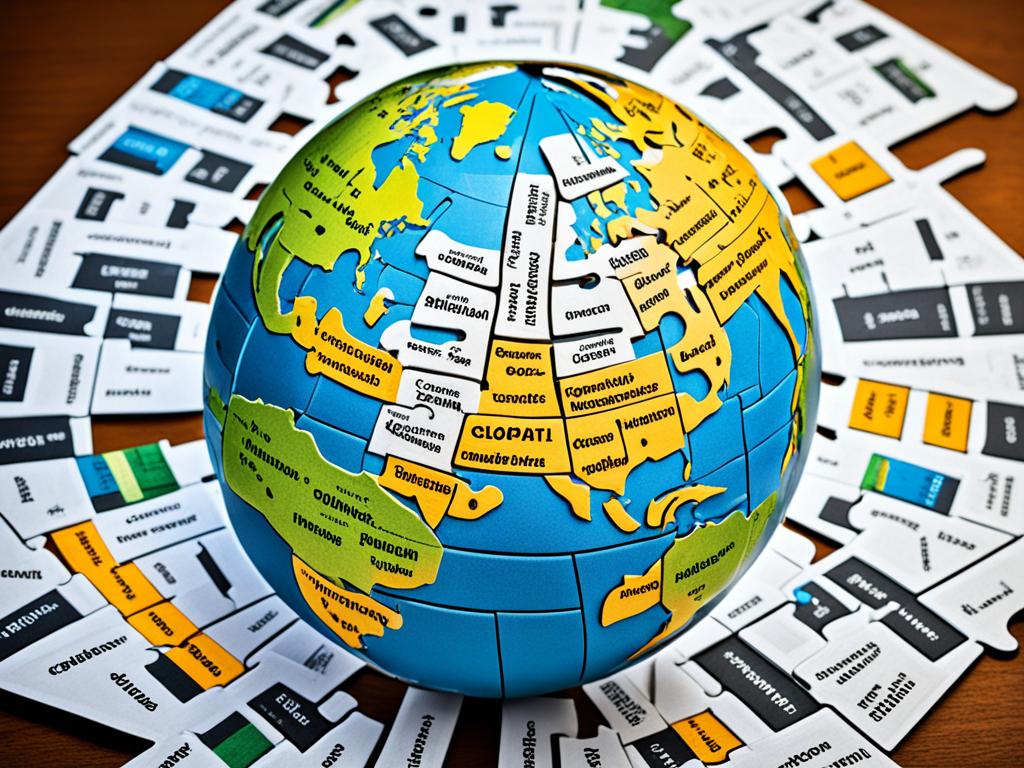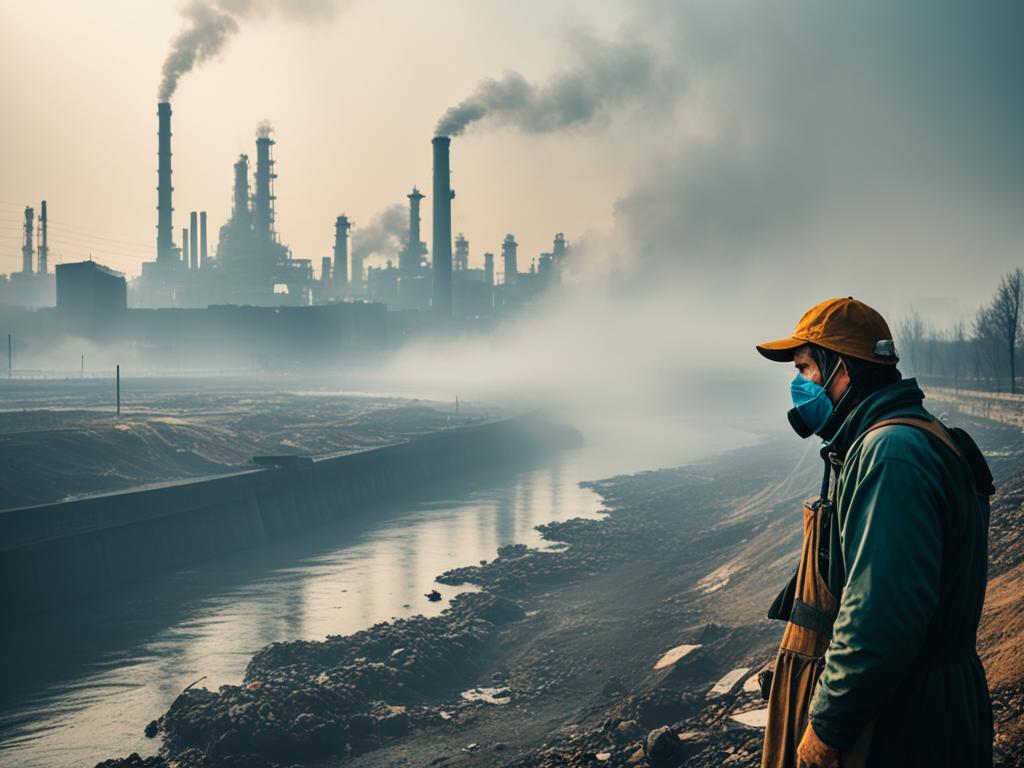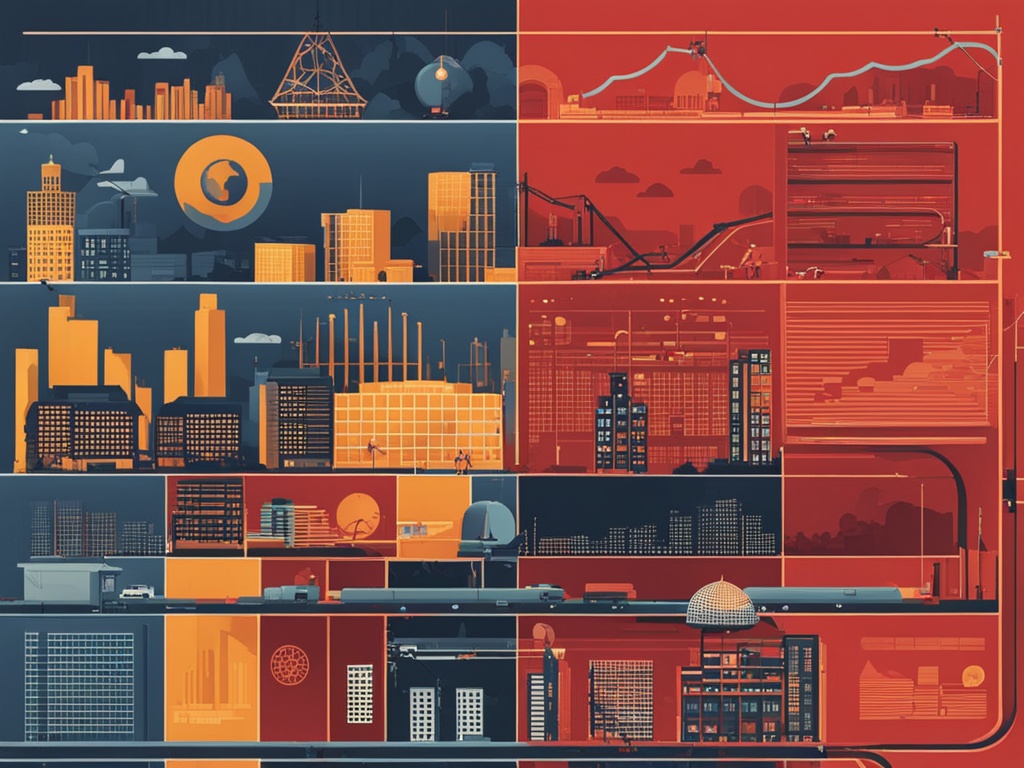Globalization is all about nations, people, and businesses becoming more connected. It’s bringing us closer economically, politically, socially, and culturally. Things like goods, services, capital, people, and ideas are moving across borders more than ever. This is thanks to better communication and transportation technologies and the fact that trading rules have eased.
This worldwide closeness is changing how we do business and live our lives. International trade is booming, companies are working together more economically, and we’re seeing more of multinational corporations and global supply chains.
Key Takeaways
- Globalization has increased the average standard of living in developing countries.
- Businesses benefit from globalization by sourcing inexpensive raw materials and leveraging lower labor costs in developing countries.
- Consumers benefit from globalization through decreased manufacturing costs, resulting in lower prices for goods and a wider variety of products.
- Globalization has led to job losses and industry declines in certain regions due to the relocation of industries and jobs to countries with lower labor costs.
- Governments and businesses can invest in education and training to improve workforce skills and increase competitiveness in a globalized economy.
Understanding Globalization
Globalization links the different parts of our world together. It’s about how companies, groups, and whole countries do business worldwide. However, globalization isn’t just about money. It also mixes politics and culture into a global blend.
Definition of Globalization
Globalization ties everyone and everything closer around the globe. It brings together economic, political, social, and cultural systems across borders. This leads to more trade in goods, services, money, people, and ideas.
Historical Perspective on Globalization
Globalization is ancient. It started when early communities began exchanging goods locally. As societies grew, they traded with distant cultures. The Silk Road was a major player in this early globalization, spreading goods between Europe and Asia. For over 1,500 years, this trade shaped a global economy.
After Europeans explored America, globalization truly took off. This era, known as the Columbian Exchange, saw the widespread movement of plants, animals, and peoples across continents. The Triangular Trade also emerged, linking Europe, Africa, and the Americas. This brought goods but also spread slavery.
Drivers of Modern Globalization
Today’s globalization speeds up thanks to fast communication and travel. This lets businesses quickly spot global investment chances. Innovations in information technology make this possible, allowing for swift talks and the speedy money transfer worldwide.
Better economic policies and trade deals between nations also push globalization forward. Plus, stable political and economic environments encourage countries to join in. Sadly, the shaky situations in many African nations hold the continent back from globalization’s full benefits.
The Effects of Globalization on the World Economy
Globalization has changed how the world does business. It has opened doors for international trade, making economic integration possible. This change has been driven by multinational corporations and global supply chains. All these things are linked across countries, boosting the global economy with more goods, services, and ideas.
Technological progress and changes in trade policies have sped up globalization. The world now trades more and invests faster. These changes are at the heart of our closely linked global economy.
Globalization has offered many chances and also some tough problems. It helps countries grow economically, making trade opportunities and access to new markets possible. But it also comes with issues like job losses and widening income inequality. It can even affect cultures and the environment.
The good and bad of globalization isn’t spread evenly around the globe. Some areas, like Africa, have missed out more because of challenges related to politics and economy. In contrast, countries like China and Vietnam have seen big improvements in their standards of living. This was thanks to being part of the global market.

Moving forward, we need to tackle the opportunities and problems of globalization as a whole. We must work on things like better education and industry diversification. Also, it’s vital to focus on making infrastructure better and supporting small businesses. Protecting the environment and setting good social standards is key as well. The goal is to make the world’s economy work for everyone.
Positive Impacts of Globalization
Globalization lets businesses find cheap raw materials worldwide. It also offers lower labor costs in developing areas. At the same time, they can use advanced skills from developed countries. This mix leads to more trade and investments between countries. It boosts the economy and grows wealth for many.
Increased Trade and Investment Opportunities
Globalization opens doors for countries to trade and invest more. It makes it easier for goods, services, money, and ideas to move around. With this, we see more business action and wealth creation as new markets are explored.
Access to New Markets and Customers
Globalization broadens a company’s reach. It lets them find new customers and markets, boosting their earnings. With access to more people, companies can enjoy better sales and profits. This is a clear benefit of reaching out globally.
Greater Efficiency and Productivity
Globalization sparks more competition among businesses. This pushes companies to find new, efficient ways to work. They adopt the latest tech and knowledge to stay ahead. In doing so, they become more productive, which is great for the economy.
Spread of New Technologies and Knowledge
Globalization helps new tech and knowledge spread fast. Countries share and learn from each other, picking up the best practices. This sharing boosts competition, efficiency, and growth across many fields. It’s a win for everyone involved.
Negative Impacts of Globalization
Globalization has good and bad sides. It has made the world economy stronger. But, it has also caused problems. For example, jobs often move to places where labor is cheaper. This can hurt workers in richer and poorer countries. They face tough choices like accepting lower pay or losing their job to someone working for less.
Job Losses and Industry Declines
Economic changes have seen jobs and factories move to cheaper places. This has made some industries smaller or even die out. Many people in these areas have lost their jobs. They used to depend on these industries for work.
Widening Income Inequality
Not everyone has benefited equally from globalization. Some have gained a lot, while others have not. This has made the gap between rich and poor countries, and people, wider.
Cultural Homogenization
Globalization spreads Western culture all over. This often comes at the cost of local cultures fading. People worry about losing cultural variety and the risk facing smaller cultural groups.
Environmental Degradation
More trade and business equal more harm to the environment. This shows in pollution and damage to natural areas. The way we make and transport things often uses harmful resources. We must find ways to do business that don’t hurt the planet.

Strategies for Adapting to Globalization
The world is getting smaller as globalization picks up speed. To keep up, governments and companies need to change how they do things. They should invest in teaching their people, make different kinds of products, build better things, and help small businesses.
Investment in Education and Training
Making sure that workers know a lot and have good skills is key. This means teaching them new things, helping them study technical stuff, and spending money on new ideas. When the team is smart and skilled, their work and their country can do well in the big, global market.
Diversification of Industries
It’s risky to rely too much on just one business area or place. So, it’s smart to do many different things, like making new products, selling to other countries, or starting in new fields. This way, if something bad happens in one area, it doesn’t hurt as much.
Infrastructure Development
Good roads, working ports, and fast internet make selling things easier and attract investors from other countries. These things help local companies work better, sell more, and create jobs. They also make a country grow and look better to everyone else.
Support for Small and Medium-sized Enterprises (SMEs)
Big help can be given to smaller businesses by giving them what they need to compete, like easy access to money or getting into new markets. This help makes a country’s business world more lively and ready to face the world. It’s like growing strong plants that can weather any storm.
Balancing Opportunities and Challenges
Globalization shapes our world’s economy. To make it work for everyone, we need a strategy. This strategy must focus on helping everyone benefit. It isn’t just for a lucky few.
Inclusive Economic Growth
We must find ways to bring everyone into the economy. This involves things like more education and training. Supporting smaller businesses and protecting workers are key. These efforts help those hit hardest by change.
Fostering Innovation and Technology
To stay ahead, we need to be innovative. Governments and businesses play a big role here. They should invest in new ideas and promote sharing technology. This way, we all get better jobs and lifestyles.
Promoting Sustainable Development
But, we can’t ignore the planet or people’s well-being. It’s crucial to protect the environment and fair work. Policies should keep bad things at bay, like pollution and overuse of resources. Sustainable development is about making sure we all win, not at anyone’s loss.

A well-rounded strategy is the way forward. By doing so, we can make changes that benefit everyone. International trade, investment, and new technology can make the world better. They can help us all have a brighter future.
The Future of Globalization
Globalization is changing the world and making it smaller. It brings us all closer together through the blending of economic, political, social, and cultural systems. This will make us more connected and dependent on each other.
Continued Interconnectedness
The world has become tightly connected thanks to globalization. What happens in one place can affect many others. As technology improves, it gets easier to share goods, services, capital, and information across borders.
Cultural Exchange and Tolerance
Because of globalization, we share more ideas and cultures. This helps people be more open and accepting of others. Exposure to different cultures and viewpoints helps us understand each other better and appreciate the global mix.
The Role of Governments and Businesses
Governments and businesses greatly influence how globalization affects the world economy. Good policies and working together worldwide help make globalization’s perks widespread. At the same time, they help reduce any damage it might cause. By working together, leaders from government and business can make the most of globalization. They can tackle its challenges too.
To make sure globalization’s benefits are shared fairly, governments have a big job. They need to make policies that help everyone grow economically. This might mean investing in school and teaching people new skills, making different kinds of jobs, building roads and networks, as well as backing small and medium-sized businesses. It’s important for countries to work with each other too. Sharing what works well and joining forces to solve big issues makes a difference.
For companies, the world is changing fast, too. They need to be creative and use new technology to do better and stay ahead. This helps them not just grow, but also share their good ideas with others worldwide. It’s also vital for companies to think about the future, aim for progress that doesn’t harm the earth, and respect workers’ rights. These steps can stop some of the bad results of globalization, like hurting the environment or people working too much.
Source Links
- https://education.nationalgeographic.org/resource/effects-economic-globalization
- https://researchfdi.com/resources/articles/the-effects-of-globalization-on-economic-development/
- https://www.nationalgeographic.org/article/effects-economic-globalization/5th-grade/
- https://www.investopedia.com/articles/economics/10/globalization-developed-countries.asp
- https://online.hbs.edu/blog/post/pros-and-cons-of-globalization
- https://bluenotes.anz.com/posts/2016/02/five-ways-to-adapt-to-globalisation-and-the-changing-workforce
- https://uu.diva-portal.org/smash/get/diva2:1595238/FULLTEXT01.pdf
- https://velocityglobal.com/resources/blog/globalization-benefits-and-challenges/
- https://www.linkedin.com/pulse/globalization-abhishek-singh
- https://www.cgdev.org/blog/future-globalization
- https://www.mckinsey.com/mgi/our-research/how-our-interconnected-world-is-changing
- https://foreignpolicy.com/2020/07/04/this-is-what-the-future-of-globalization-will-look-like/
- https://www.investopedia.com/terms/g/globalization.asp


